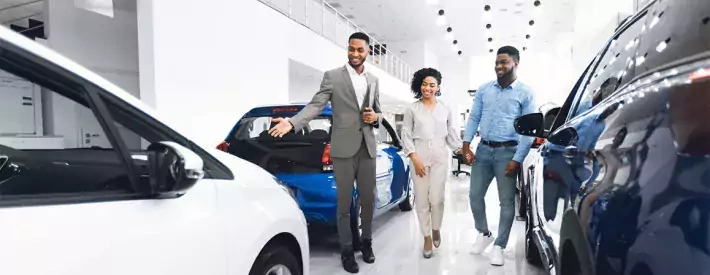Boost success by multi-franchising

Vehicle sales is a tough business at the moment, but one option to increase profitability may be multi-franchising.
If 2020 has taught retailers anything it’s that keeping costs down is the key to survival when times are tough.
Perhaps the biggest cost is manufacturer mandated huge shiny showrooms, but with almost all buyers starting their car purchase online, and during lockdown completing it there too, are massive single-brand showrooms still needed?
While there are multiple views about what the future holds for large showrooms, and several answers about how to reduce property costs, one of the simplest (at least on the surface) is to put more than one brand in the building; going down the multi-franchising route.
Vertu Motors has recently adopted a multi-franchising strategy in order to boost profitability, particularly with higher volume brands that have seen a decrease in market share over recent years.
Robert Forrester, Vertu CEO, said he was planning a lot of multi-franchising for his sites over the next year: “Multi-franchising is a strategic approach for us as we see profitability pressure, particularly on aftersales and overhead absorption,” he said.
He added there was also an element of futureproofing as EV sales increased and their servicing needs were lower in comparison to petrol and diesel: “The aftersales benefit is more tangible than sales.
“There are two routes to take. The first is for a network to have fewer outlets, therefore increasing sales per dealer, and the second is for a dealership to have more than one franchise. You’ve got to have a plan for those locations with a single brand that has a falling market share,” said Forrester.
However, he sounded a note of caution too: “If you’ve not got the management skills in place then focus can be difficult, particularly if you’re a group with franchise directors then potentially you could have two people in control of a single site.” He added: “Manufacturers are on board with multi-franchising as it’s the way the world is. They are being very supportive.”
Suzuki is one brand with a high proportion of its network being multi-franchised. Dale Wyatt, Suzuki GB automobile director, explained: “More than half of the Suzuki network is multi-franchise.”
“We have no problem with retailers going for multi-franchising providing the correct infrastructure and staffing are in place. You have to remember that multi-franchising adds complexity to a business, so you have to be at the top of your game before making the move.
“If you’re leading on market share and you’ve got the best management in place then it’s a great next step. However, if your business is struggling to hit targets then why would you add more complexity? You need to be able to demonstrate that you can look after your business and customers properly before making the move.” Wyatt also listed a few key factors that retailers should also consider in a multi-franchising scenario.
“When looking for another brand it’s best to choose a complimentary, non-competing one because you want to be looking for new customers, not diluting your sales across your existing customer base.
“You also have to remember to consider used cars. Selling used cars is all about selling space. If you use up that space with another brand then it will impact used car operations,” he warned, adding: “Don’t do it on the cheap, make sure you have the facilities and the staff.”
His sentiment was echoed by Forrester: “If you’ve got a loss-making business with poor sales and poor management then it’s not going to help.” He added that multi-franchising wasn’t a solution for all brands or all locations. “We wouldn’t do it in certain city locations, however, multi-franchising is part of our core thinking now. The volume brands are where it’s going to happen first.”




